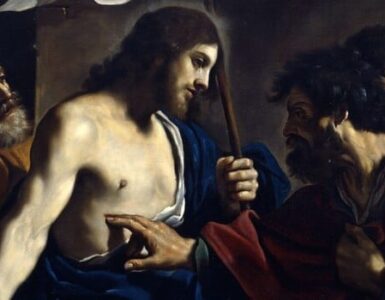St. Macarius of Alexandria, also known as Alexandria the Younger, lived in the fourth century in Egypt. Not only was he a very successful confectioner, he was also a very devout Christian. Because he desired to serve God with his whole being, he gave up his business to become a monk. He spent the last sixty years of his life living as a hermit. He built cells in the deserts of Skete and Nitria; however, most of his time was spent in the area called the Cells. He was ordained and lived a life of austerity. St. Macarius became known for all the miracles that happened around him or through his prayers. He was sent into exile to an island in the Nile along with Macarius the Elder. He was eventually set free. There is a constitution named after him, which he wrote for the monastery in Nitria. Some of the rules in his constitution were adopted by St. Jerome for his monastery.
In the desert of Nitria there is a monastery, which bears the name of St. Macarius. The constitution that Macarius penned is kept there. According to the constitution, the monks fasted for the whole year except on Sundays; they observed strict poverty and divided their days between manual labor and prayer. There was silence observed unless there were visitors and then only the monk or monks who had the duty of entertaining guests were allowed to speak. The cells that they lived in were isolated from one another so that when in their cells they did not see one another. This is how St. Macarius spent the majority of his life. He and his brothers preferred to live focused on God and not on the things of the world. They lived as far removed from the world as they possibly could.
Prayer
Father, you gave St. Macarius the strength and grace to live the life of a hermit. Please help us to discern the life that you have called each of us to and give us the grace to do Your will always. In the name of Jesus we pray. Amen.
Other Saints We Remember Today
St. Basil the Great (379), Bishop, Doctor, Patron of Russia, Hospital Administration, Father of Eastern Monasticism
St. Gregory Nazianzen, “The Theologian” (398), Bishop, Doctor
Holy Name of Jesus











